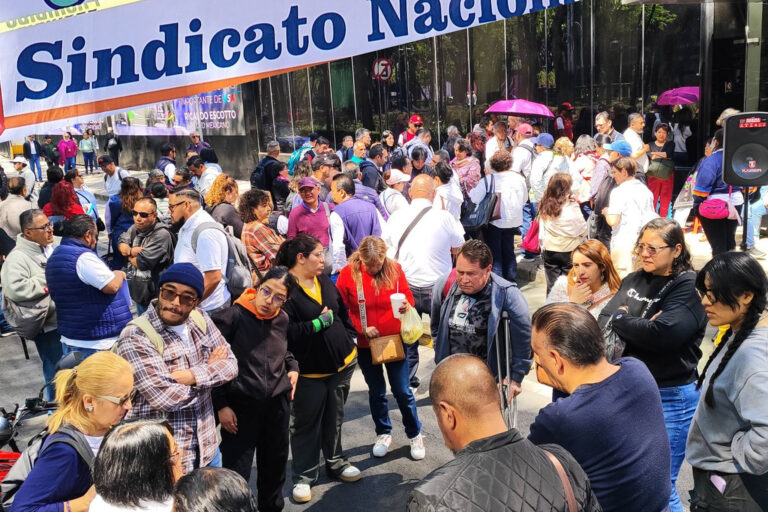Health Sovereignty: From Profit-Driven Disorganization to Public Reconstruction
This editorial by Alejandro Svarch appeared in the July 11, 2025 edition of La Jornada, Mexico’s premier leftist daily newspaper.
A year ago, I wrote in these pages about the loss of sovereignty in health. I did so like someone throwing a bottle into the sea: with the hope that someone would read it, but also with the urgent need to speak out. Now that the public conversation has brought this topic back to the forefront, I’m returning to that reflection from a different perspective: with more data, more certainty, and a firmer conviction.
Healthcare can no longer be treated as a business. It’s time to rebuild what was dismantled.
For decades, Mexico developed the industrial capacity to produce medicines. Public plants were operating, regulations were firm, and value chains were articulated locally. But starting in 2008, something changed abruptly. The pharmaceutical industry’s gross domestic product began to decline, disconnecting from the overall manufacturing trend. The decisive blow was the elimination of the plant requirement, which opened the door to the commercialization of medicines without any local production.
That decision was not technical, it was political.
The choice was made to favor the free market instead of protecting national capacity. This was justified in the name of efficiency, but what it produced was lucrative disorganization: a fragmented system, riddled with intermediaries, where multiple actors earned rents without adding any value.
The costs fell on the population.
More out-of-pocket spending, less access, returning diseases.
The pandemic was the mirror. When we most needed inputs, we realized we had lost the ability to produce them. The factories were closed, the molecules weren’t ours, and delivery times were dictated by Asia or Europe. It wasn’t just a logistical problem: it was the confirmation of a historic renunciation.
Something different has been brewing. The discussion about health sovereignty has returned to the forefront. From strengthening public healthcare to creating a free national system through IMSS-Bienestar, it’s about restoring capacity, infrastructure, and trust.
It’s not enough to import more cheaply: we must return to production, planning, training, and ensuring access as a right, not as a commodity.
We’re not just talking about laboratories or molecules. We’re talking about a model for the country. A model in which the State doesn’t withdraw, but leads. In which healthcare isn’t outsourced, but cared for. In which the public interest isn’t subordinated to the lobbying of a few.
Regaining sovereignty also requires making concrete technical decisions. One of the key steps is defining lists of strategic medicines whose national production should be prioritized and incentivized. The path to self-sufficiency involves combining smart industrial policies with market-guiding regulations. It’s not easy: experiences in other countries have shown that some public-private partnerships failed to yield the expected results, and even required dismantling production lines.
Therefore, moving forward with realism, strategic vision, and public commitment is an essential part of this task.
Recovering sovereignty is not an act of nostalgia, it is an urgent task.
Because every medication that doesn’t arrive, every patient left without treatment, is a sign of what we’ve let fall. And also, of what we can rebuild.
The mountain remains one. So does the sky. It’s also possible that the healthcare system will be one again.
-
CNTE Announces 72 Hour National Strike & March to Mexico City’s Zócalo
The class-conscious teachers union will also make “courtesy visits” to the embassies of countries who committed atrocities against Iran, to show their rejection of US imperialism.
-
Culture | Labor | News Briefs
Workers Occupy Culture Secretariat, Demand 13% Wage Increase
2,000 workers have been receiving incomes below Mexico’s minimum wage for over two years.
-
Tridonex Strike in Matamoros to Start March 6th
1,300 workers are expected to strike, demanding the company fulfill its obligation to pay workers in full. Tridonex is owned by First Brands, the US autoparts corporation accused of massive fraud.




